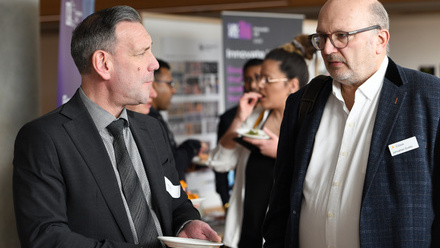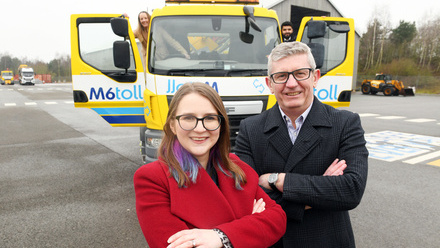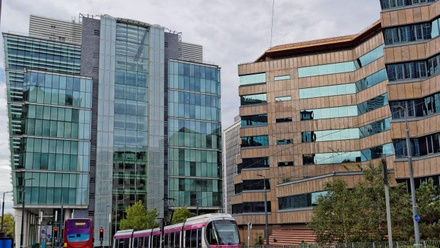The Griffin Report: Vice-chancellor’s five-year plan to take Birmingham City University to the top
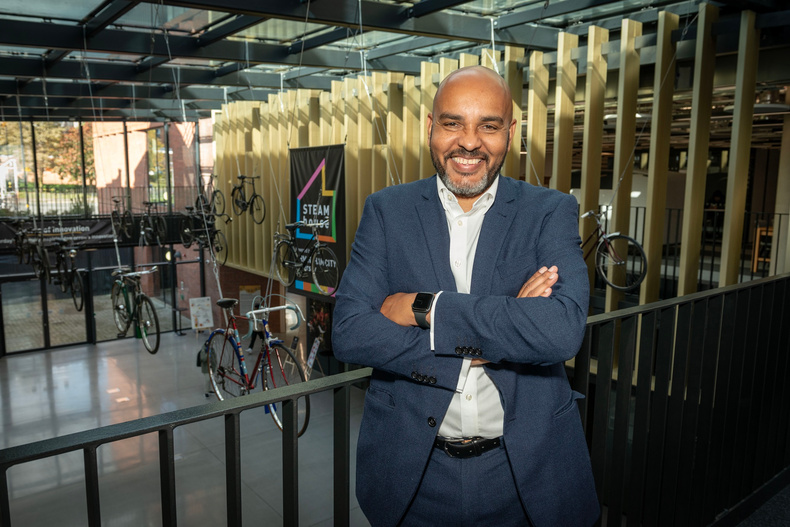
Ebullient PROFESSOR DAVID MBA has launched a five-year plan called Rooted in Birmingham, Reaching Beyond for the historic Birmingham City University, where he became vice-chancellor just over a year ago. One of his priorities is to be the largest supplier of skilled graduates in the region. He explains his vision to JON GRIFFIN.
Professor David Mba is not a man to mince his words.
“I think this is a sleeping tiger, and now it’s time to roar.”
The sleeping Big Cat in question is Birmingham City University (BCU), where Professor Mba took over as vice-chancellor just over a year ago, presiding over an establishment with 33,000 students and nearly 5,000 full and part-time staff.
It’s clearly a demanding role in a highly competitive sector, with around 40 per cent of universities expected to run up budget deficits this year.
But the ebullient professor is full of hope for the future of an institution which has been part of the city’s educational fabric since the early days of Queen Victoria, when it launched in 1843 as the Birmingham College of Art.
More than 180 years later BCU - following its more recent incarnations as Birmingham Polytechnic and the University of Central England - has firmly established itself as the second largest university in the city.
But Professor Mba is not content to play second fiddle to frontrunners the University of Birmingham.
“Overall, the university has some fantastic metrics – we are now 33,000 students. We are the second biggest university for now but absolutely we would like to be top.”
To steer BCU towards that aim, the university is launching a new five-year strategy this month called ‘Rooted in Birmingham, Reaching Beyond’ following nine months of consultations with staff, with skills at the heart of the new agenda.
I think this is a sleeping tiger, and now it’s time to roar.
“One of our key priorities is to be the largest supplier of skilled graduates in the region. We can do that – I am certain we can do that. We have nursing, we have midwifery….engineers, architects, lawyers.
“We are not theoretical, we are very practice-applied - I think we should have the most-ready graduates for work, and that is what we want to improve on. We want to be an exemplar as an institution.”
The vice-chancellor once worked in warehouses and washed cars before taking the first steps into the academic world which eventually saw him hold senior leadership posts at Cranfield University, London South Bank University and De Montfort University.
He was born in Westminster, London, but grew up in Nigeria where he went to school and attended the University of Lagos.
Originally planning to become an engineer, he moved to the UK in 1990 and studied aerospace, aeronautical and astronautical engineering at the University of Hertfordshire.
He later completed a PhD in Mechanical Engineering at Cranfield University before moving full time into the academic world in 2000.
He expands on his theme of transforming the lives of thousands of students who often hail from deprived backgrounds.
“Seventy per cent of our students are from the West Midlands – a lot of them commute. Forty-eight to 50 per cent are from the most deprived areas of Birmingham and the West Midlands. Twenty-two per cent have no family household income.
“We offer a transformation that really speaks to social mobility – we are now 68 per cent minority ethnic students, so we really represent the city.
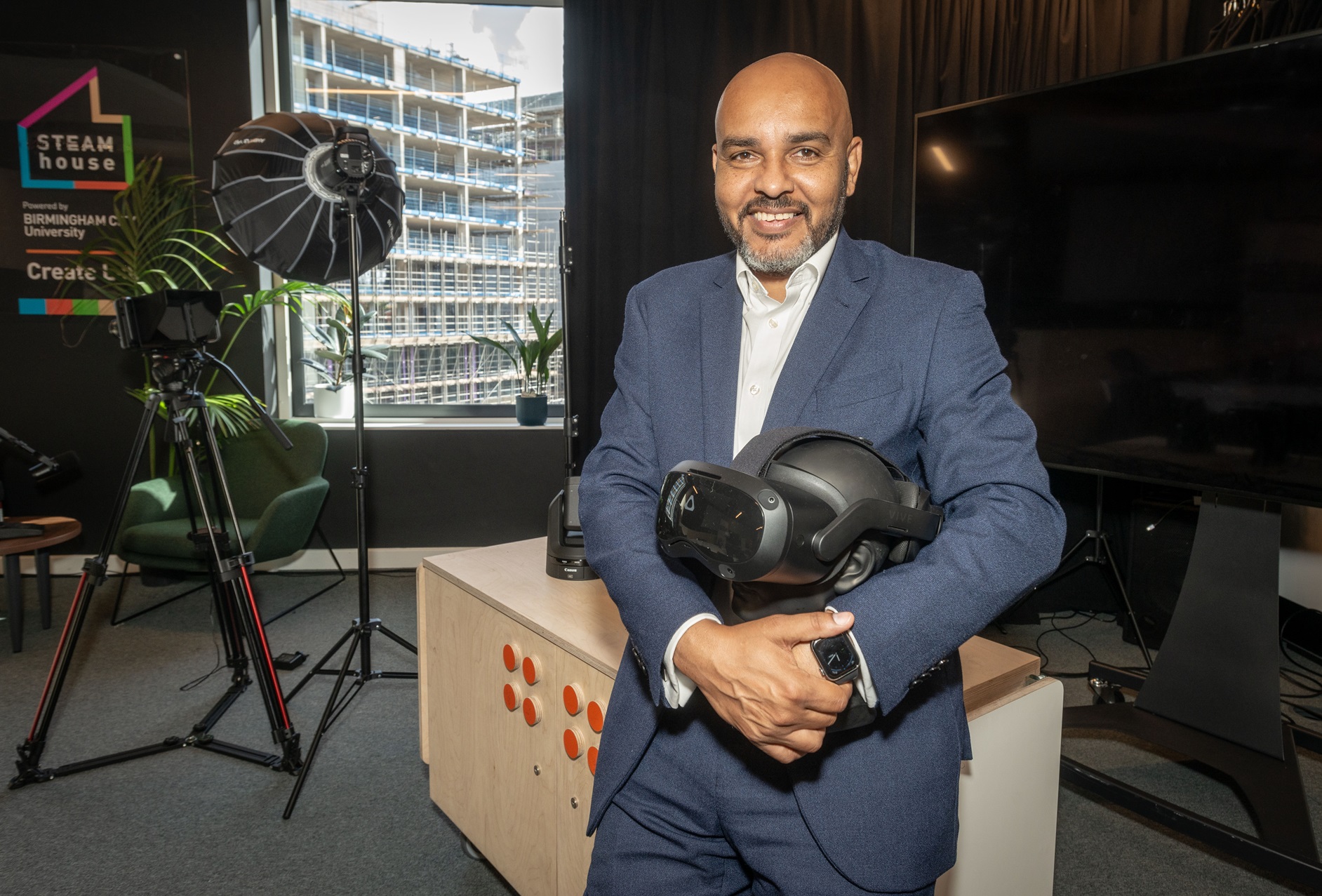
“It is a very ethnically diverse student body and the fact that we can give them a transformational education and see them go on to get professional jobs is good for them but also good for the community.”
The vice-chancellor pinpoints the new Rooted in Birmingham, Reaching Beyond strategy as a key milestone for the future of BCU in a sector where several universities are discussing potential mergers in an increasingly tough landscape, with dozens of campuses nationwide launching voluntary severance programmes to cut costs.
“We want to reach beyond but first and foremost we want to help address the societal challenges in the city and in the region, be it health and wellbeing, the creative areas, culture, sport. We are going to reimagine our research, our knowledge exchange, our enterprise to focus really on what sort of impact we are making here.
“We put together dozens of face-to-face online workshops. We spent months getting all this information, then began putting it all together. It is going to take us to 2030 and beyond and is going to speak to our agenda for skills.”
The vice-chancellor recognises that merger options in the university sector are part of “live discussions” - but stresses that BCU has avoided voluntary severance programmes, unlike more than 60 other campuses across the country.
“Financially we made a surplus last year and we should be OK for this year whereas a lot of other organisations/universities have gone into voluntary severance to cut staff. We haven’t, we were very prudent early on.
“I made savings very quickly. The question about mergers is an ongoing live discussion, many vice[1]chancellors are having this type of discussion. Those discussions are still active – there isn’t a clear path as to how that would emerge.
“We need to be really agile and creative in how we teach to find efficiencies, but still get the best outcome for students.”
As BCU gears up for the launch of ‘Rooted in Birmingham, Reaching Beyond’, Professor Mba says growing numbers is key to the future prosperity of an institution which he says throughout its lengthy history has stayed true to its original mission to link engineering and manufacturing with the world of arts and design.
“We graduate more creative graduates than any other university in the West Midlands – that stems from our history.
“That is the challenge – It can remain in a stable position if I keep growing my numbers and hopefully that growth overcomes inflation, overcomes the annual pay increase, overcomes the pension increase, you are constantly chasing your numbers.”
For now, the vice-chancellor sees the new five-year strategy as a key part of a three-pronged BCU blueprint to help nurture the skills of the next generation of talent.
“One is about the talent of tomorrow, to make sure that students going into work have the skills that align with what the city needs and the region needs – that is our core business.
“We want to ensure that nursing students, computer science students, engineers, business students all tackle live projects that can impact society. You have got to be creative, the world is changing so fast, technology is changing so fast.”
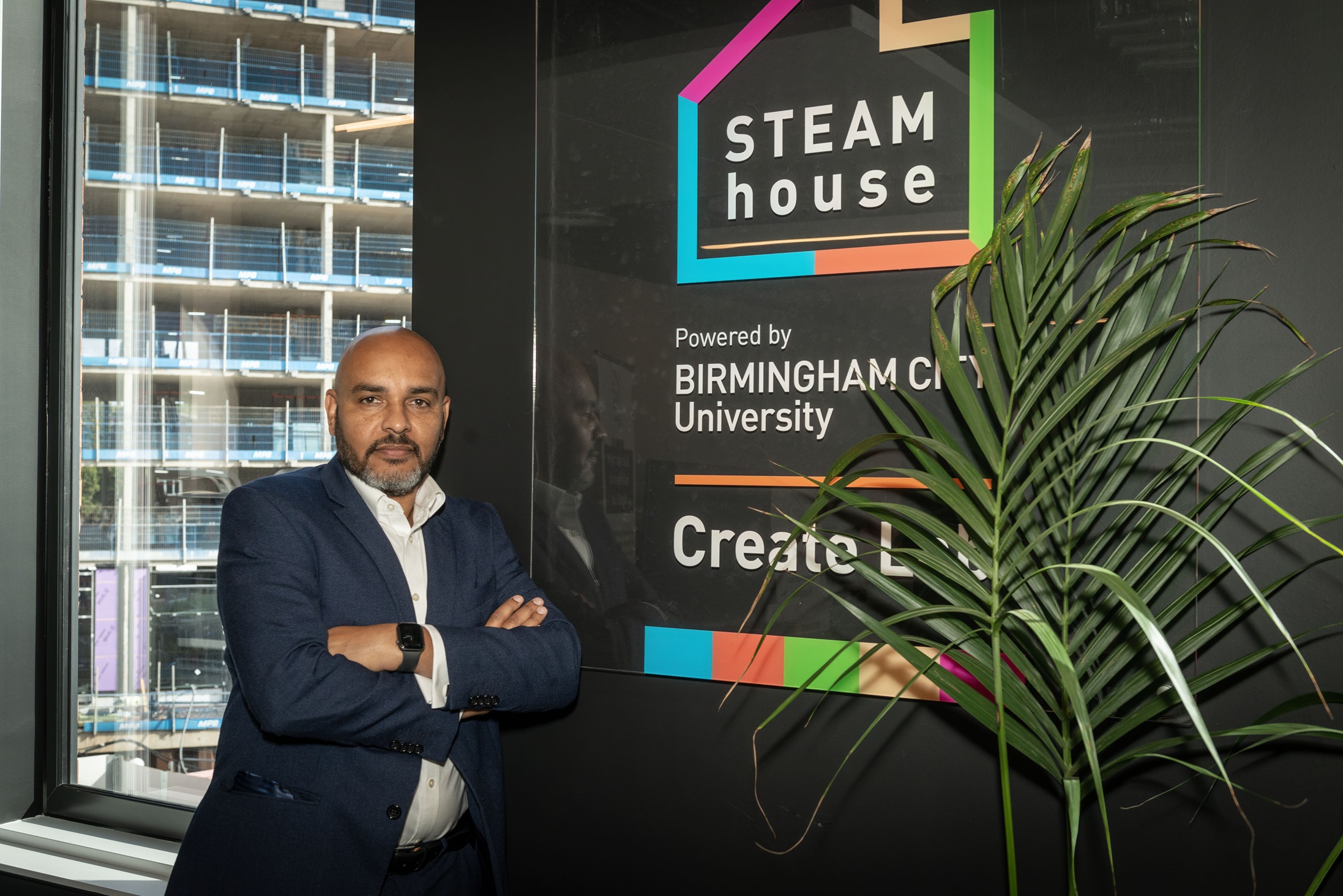
He cited the second priority as “applying knowledge for good”.
“That is about how our research can help make a difference. It is not research for the sake of research any more – it is about research because there is something we want to do for the city.
“The last pillar for us is prosperity – we have spoken about economic prosperity but there is also the health and wellbeing which is an explicit line in our strategy going forward. How do we deliver prosperity of health and wellbeing?
“We have (sport programme) teaching in Alexander Stadium. How can my nursing students work with the communities, work with the sports students to help inform and educate the community about nutrition, about sports?”
Professor Mba is equally passionate about his role as chair of the Birmingham Cultural Compact, set up to create and deliver a new vision for culture across the city.
“This is to develop a new cultural strategy for the city. That is about what is going to attract the next generation of creatives into the city, what is the attraction of the city for both international and national investment.
“Why do we generally have to go to London for culture? Why can’t London come to Birmingham?
“It is about trying to change that narrative and find a uniqueness that is very Brummie. If you think of us as the second biggest city I don’t think the culture and arts provision reflects that size, nor does the investment in culture reflect the size, so there is more work to be done.”
A year into his vice-chancellorship Professor Mba is clearly relishing the challenges of helping drive Birmingham and the West Midlands towards a prosperous new post-industrial future in a competitive hi-tech world on various fronts, from developing 21st century skills to enhancing the region’s culture.
But is BCU’s national reputation as firmly established as it could be?
“No, I don’t think it is – when I said sleeping tiger, I genuinely mean it. We are up for the competition.”
This article first appeared in the November 2024 edition of Chamberlink magazine.
Read the digital edition of the magazine.

